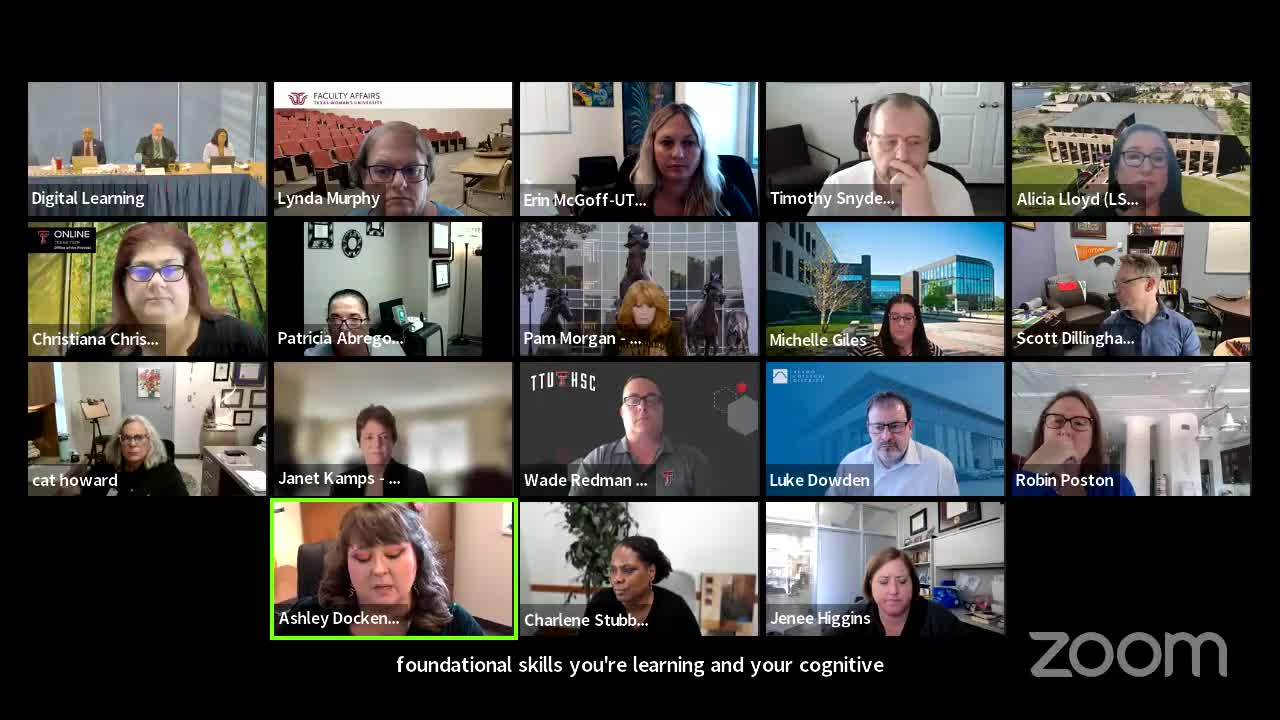Educators Discuss AI Impact on Learning and Multigenerational Engagement Strategies
August 09, 2025 | Higher Education Coordinating Board (THECB), Departments and Agencies, Executive, Texas
Thanks to Scribe from Workplace AI , all articles about Texas are free for you to enjoy throughout 2025!

This article was created by AI using a video recording of the meeting. It summarizes the key points discussed, but for full details and context, please refer to the video of the full meeting. Link to Full Meeting
One of the central themes of the discussion was the concept of cognitive offloading, a phenomenon where students rely heavily on technology for basic skills, potentially hindering their ability to learn effectively. As one member pointed out, students born in the last six years are entering an education system where they are "native AI learners." This reliance on technology raises concerns about their ability to develop critical thinking and problem-solving skills, as they may not experience the necessary struggles that come with traditional learning methods.
The committee also touched on the impact of state laws banning devices like cell phones and laptops in classrooms. While some viewed these restrictions as safety measures, others argued that they could inhibit students' ability to focus and engage deeply with their learning. "Learning is struggle," one member emphasized, suggesting that overcoming challenges is essential for retention and understanding.
As the conversation progressed, the importance of pedagogy and andragogy—the methods and principles of teaching—was highlighted. Many educators lack formal training in these areas, which can affect their effectiveness in integrating technology into their teaching practices. The committee recognized the need for ongoing professional development to equip educators with the skills necessary to navigate this new landscape.
The discussion also included insights on multigenerational trends in education. Members noted that understanding these trends is crucial for creating inclusive learning environments that cater to diverse needs. One member shared a positive experience from their hiring process, where candidates demonstrated their ability to integrate AI into their teaching strategies, showcasing a hopeful outlook for the future of education.
As the meeting drew to a close, the consensus was clear: engagement among educators, policymakers, and technology developers is vital. The committee members stressed the importance of having educators involved in discussions about regulations and policies that affect the learning ecosystem. "If we abdicate that responsibility, our civilization will suffer," one member warned, underscoring the critical role of education in shaping the future.
In a world increasingly influenced by technology, the LTAC meeting served as a reminder of the delicate balance between leveraging AI's potential and preserving the fundamental principles of effective learning. As educators continue to adapt to these changes, the discussions held at this meeting will likely resonate in classrooms across Texas and beyond, shaping the future of education in the digital age.
Converted from Learning Technology Advisory Committee (LTAC) August Meeting 08/08/2025 meeting on August 09, 2025
Link to Full Meeting
Comments
View full meeting
This article is based on a recent meeting—watch the full video and explore the complete transcript for deeper insights into the discussion.
View full meeting
